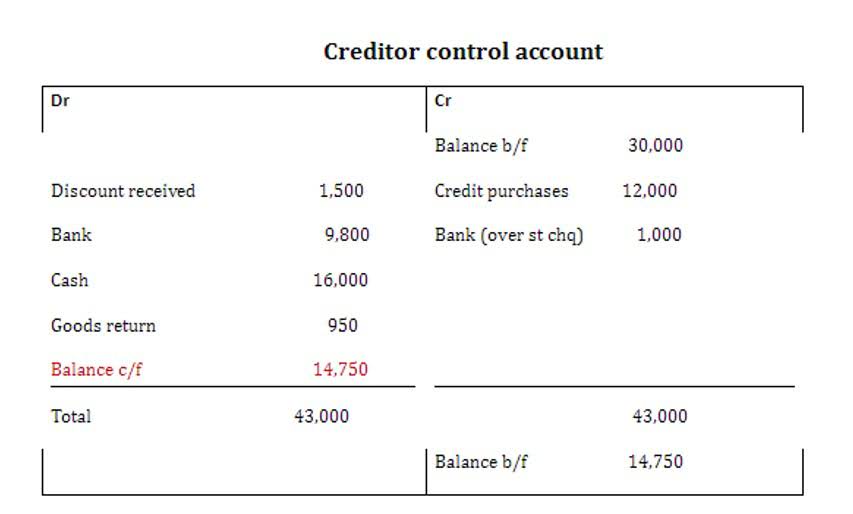
When accrued salaries are recorded as accruing liabilities on the balance sheet, they depict the financial obligations the company owes to its employees for work performed but not yet paid. This not only affects the company’s liquidity and working capital but also provides insight into its future cash outflows. Yes, accrued payroll is considered a current liability as it represents the amount of salary and wages that a company has incurred but has not yet paid out to its employees.
- It is simpler than the accrual method but shows a lagging, incomplete picture of the company’s financial standing.
- Thus, accurate reporting of accrued salaries is crucial for a comprehensive understanding of a company’s financial health.
- The purpose of this payroll is to help companies report their financial obligations and manage their cash flow accurately.
- Below, we discuss the different types of payroll accrual, how to calculate them, and the benefits they provide for your organization’s financial health.
Salary and wages
- This not only affects the company’s liquidity and working capital but also provides insight into its future cash outflows.
- If your company offers paid time off (PTO) for employees, this should also be accounted for in accrued payroll.
- Because you are accounting for accrued payroll—rather than payroll that’s been paid out—PTO that hasn’t been used yet still counts.
- From an accounting perspective, accrued wages contribute to the overall wage expenses, impacting the company’s financial statements and portraying a comprehensive picture of its financial health.
- Sign up today to see how you can get started managing employee payroll for your enterprise with much more efficiency.
- This payroll method impacts a company’s cash flow, as it must pay its employees for work done even if the payment has yet to be made.
Accrued salaries are an accounting concept that refers to the amount of salaries earned by employees for work performed during a specific accounting period but have not yet been paid by the company. Accrued salaries arise in businesses that follow the accrual basis of accounting, where expenses are recognized when they are incurred, not when the cash is paid. Additionally, accurately managing accrued payroll is crucial for legal compliance, effective cash flow management, and informed decision-making regarding labor costs and business strategy. It plays a vital role in maintaining a company’s financial health and operational efficiency. This section lists obligations that the company needs to settle within the next fiscal year, indicating short-term financial commitments such as unpaid wages, overtime, bonuses, and payroll taxes.
Related AccountingTools Courses
Current liabilities are obligations that a business needs to settle within one year or within its regular operating cycle, whichever is longer. Mr. Jones what does accrued salaries mean is paid a salary of $10,000 per month, which is paid on the 25th of the month. As of the end of the month, the employer of Mr. Jones owes him five days of pay, which is 16.6% of his full-month salary. Therefore, at month-end, the employer accrues a salary expense of $1,666.67 to reflect this unpaid portion of his salary. The entry is a reversing entry, which means that it reverses at the beginning of the next month, to be replaced later in the following month by the actual payroll payment to Mr. Jones.
What category is accrued payroll?

This concept is based on the accrual accounting method, which recognizes revenue and expenses as they are incurred regardless of when cash is exchanged. By recording accrued salaries, businesses can accurately reflect their financial obligations and the true cost of operations. It ensures that the company’s financial statements provide a Partnership Accounting more accurate picture of its financial position and performance at any given time. To illustrate how journal entry for payroll accrual is recorded in the financial statements, let’s consider a practical example. Suppose a company’s pay period ends on June 30, but the actual payday is July 5. By June 30, employees have earned wages and benefits that have not yet been paid out.

What does Accrued Salaries mean in accounting?
Accrued wages represent the portion of employees’ salaries and compensation that has been earned but not yet disbursed, constituting a significant component of wage expenses within an accrual accounting framework. Accrual entries impact the balance sheet and income statement, demonstrating the influence of these entries on accounting records and financial reporting processes. It is noted as an expense on the income statement, reflecting the cost of employee services used in a period. Simultaneously, it is also recorded as a liability on the balance sheet, representing the sum due to employees for these services yet to be paid.
Payroll setup: How to set up payroll

The accrual of these bonuses also holds significant financial implications for companies as they represent future cash outflows and are required to be accounted for in the financial statements. In contrast, the cash basis only records revenue when the cash is received, potentially leading to distorted income reporting and misleading investors and stakeholders about the company’s actual financial health. Company ABC pays monthly salaries of $30,000 to its employees on the 4th day of the next month for the previous month. On 30th June 2021, the company prepared its financial statements for the year ending on 30th June 2021. The amount of salary expense owing on this day is $30,000, which will be made on the 4th of July 2021. By integrating these innovative tools, HighRadius not only enhances the accuracy of payroll journal entries but also ensures a seamless, efficient reconciliation process.
By recording accrued salaries, businesses can present a more accurate financial position by acknowledging the true cost of employee wages, even if the payment has not been processed. It allows for better matching of expenses with the revenues they generate, aiding in the transparency of financial statements and providing stakeholders with a clear understanding of the company’s outstanding financial commitments. Accrued salaries refers to the amount of liability remaining at the end of a reporting period for salaries that have been earned by employees but not yet paid to them. This information is used to determine the residual compensation liability of a business as of a specific point in time. This concept is only used in businesses that employ the accrual basis of accounting, under which expenses are recognized as they are incurred. This journal entry ensures that the June financial statements of the company include all the expenses related to payroll, even though the related payment will be in July.
Accrued Salary Expense Journal Entry
- So, according to the accrual basis of accounting, you’ve accrued $3124 in gross wages.
- As it is the amount the business owes to its employees for the services they have already rendered, accrued Salaries and wages tend to occur frequently within usual business operations.
- When a payment is made to clear the dues for accrued salary expense, an entry must now be made to the Salaries Payable account and cash account.
- These are taxes that employers are obligated to pay on behalf of their employees, such as social security and Medicare taxes in the United States.
- Employers need to know not only how much they’ve paid employees and government agencies, but also how much they still owe.
- Therefore, by recording the payroll accrual, a company can better manage its cash flow and ensure that it has adequate funds to meet its payroll obligations.
This entry records the salaries expense in December and the accrued salaries as a liability on the company’s balance sheet. For hourly workers, this includes their hourly wage times the number of hours they are scheduled to work. Since this amount is yet to be paid by the business, it must be written down as a liability. The amount of liability that remains unpaid at the end of a financial year for the employees’ salaries is known as accrued salaries. It refers to any unpaid compensation at the end of the year that the business should record as an expense that has been incurred but has not been paid out yet to the employees. Luckily, payroll software automates most manual labor and decreases the chance of human error.
- Add up all the calculated amounts for wages, overtime, additional pay elements, and payroll taxes to get the total accrued payroll.
- This recognition ensures accurate expense recognition and adherence to the accrual basis of accounting, ultimately facilitating comprehensive financial reporting.
- This entry records the salaries expense in December and the accrued salaries as a liability on the company’s balance sheet.
- Plus, most states have a required pay frequency—make sure you’re familiar with these laws.
How Is Accrued Salaries Recorded In Accounting?
Therefore, by recording the payroll accrual, a company can better manage its cash flow and ensure that it has adequate funds to meet its income statement payroll obligations. Thus, it is a feasible method of accounting for irregular work hours or leaves in a pay period. Consequently, it lengthens the accounting process since keeping track of the employees’ work hours is tedious. To sum up, when an employer pays wages to its employees, it is responsible for withholding and paying the required accrued payroll taxes to government agencies. We will discuss the types of accrued salaries, such as accrued wages, bonuses, overtime pay, and commissions, while examining their impact on the balance sheet and income statement.

